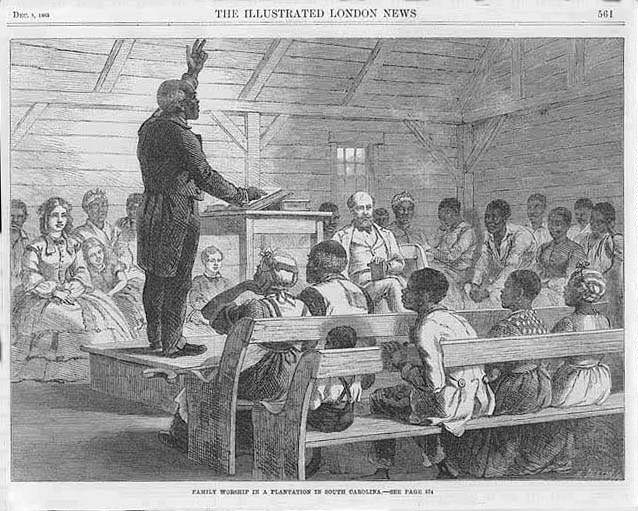

| Online: | |
| Visits: | |
| Stories: |

| Story Views | |
| Now: | |
| Last Hour: | |
| Last 24 Hours: | |
| Total: | |
Southern Christianity and Slavery

That Lincoln and his abolitionist colleagues did not propose a peaceful and practical to the African slavery they seemed to object to, is a national tragedy. Had they followed compensated emancipation as the British had done earlier (the British were primarily responsible for populating their American colonies with Africans), or helped advance a reasonable solution to the need for large numbers of workers to support their agricultural economy, a million lives would have been spared as well as the death, destruction and tortured legacy of the war Lincoln was responsible for.
Bernhard Thuersam, www.Circa1865.com The Great American Political Divide
Southern Christianity and Slavery
“ . . . Southern [slavery] reformers cast much blame on the Northern Abolitionist movement. They constantly complained that it was difficult to persuade planters that they should be teaching their slaves to read when the Abolitionists were sparing no effort in smuggling into the Southern States inflammatory literature which urged the slaves to rise up and slit their masters’ throats, among other things.
The palpable hostility and antagonism displayed by the Abolitionists toward the white South, their calls for a bloody slave rebellion, and their unrealistic demands for immediate and unconditional emancipation made slavery reform more difficult by producing resentment, fear, and a siege mentality among the whites.
[Many] Northerners (including Sen. Daniel Webster, Supreme Court Justice Joseph Story, and Princeton theologian Charles Hodge) condemned the Abolitionists for actually worsening the plight of the slaves and for creating hostility and distrust between the Northern and Southern people.
[It] is at least possible that an independent South might have enacted the reforms urged by her Christian leaders and thus avoided falling into a state of economic backwardness and dependency. After all, Southerners consistently valued such non-monetary goods as country living, personal independence and liberty, and an harmonious and rich social life at least as much as mere wealth and material accumulation; and independence [from the North] might have created a more favorable environment for Christian reform of their labor system.
Southerners might have introduced a smaller and more humanely scaled industrialization to provide some measure of industrial self-sufficiency, and black Southerners might eventually have achieved legal equality and propertied independence. In other words, an independent South could well have found an alternate – and perhaps more Christian – path to modernity. Thanks to Mr. Lincoln, we shall never know.”
(Christianity and Slavery in the Old South, excerpt, H. Arthur Scott Trask, Chronicles Magazine, July 1999, page 33)
Source: http://freenorthcarolina.blogspot.com/2017/03/southern-christianity-and-slavery.html


